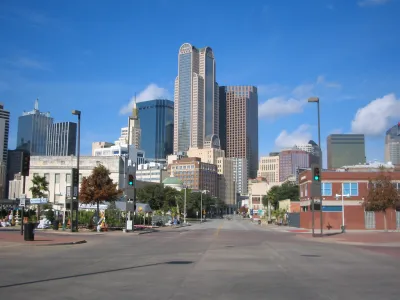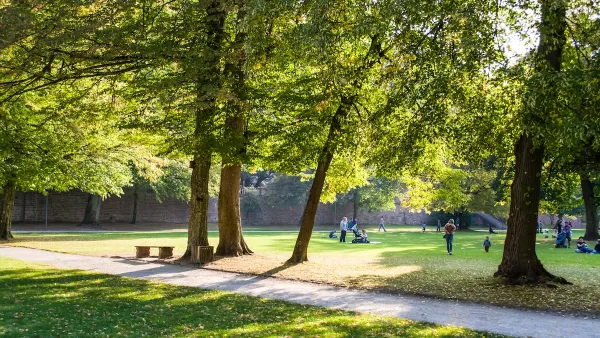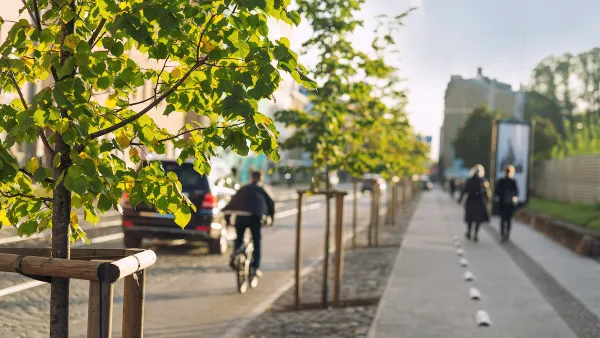The plan seeks to mitigate the effects of urban heat islands by preserving and growing the city's tree canopy.

The city of Dallas has adopted "the city's first urban forest master plan, with 14 recommendations for a unified approach to build a resilient and equitable urban forest," reports Marian Rachal in Smart Cities Dive. The plan calls for regulations that "support tree canopy preservation and growth, maximizing investment in urban forest programs and management, and creating a city storm response and recovery plan."
The Texas Trees Foundation, the non-profit that developed the plan, argues that as development in Dallas increases, the city is at higher risk for "heat island effects that affect a significant number of economically and medically vulnerable residents." A recent study on heat islands showed that "Dallas is heating up faster than every other U.S. city except for Phoenix" and could, by 2050, "have 30 to 60 additional days over 100 degrees F per year." Urban forests provide other benefits, too: "higher standardized test scores at middle schools, decreases in violent crimes, improved mental health and even shorter hospital stays for patients with views of trees," increased property values, and reduced energy costs.
The Dallas plan follows other urban forest management initiatives in cities like Los Angeles, which "in 2019 created a city forest officer position with a Southern California urban forestry expert specifically focused on managing the city's urban forest."
FULL STORY: Dallas adopts its first urban forest master plan

National Parks Layoffs Will Cause Communities to Lose Billions
Thousands of essential park workers were laid off this week, just before the busy spring break season.

Retro-silient?: America’s First “Eco-burb,” The Woodlands Turns 50
A master-planned community north of Houston offers lessons on green infrastructure and resilient design, but falls short of its founder’s lofty affordability and walkability goals.

Delivering for America Plan Will Downgrade Mail Service in at Least 49.5 Percent of Zip Codes
Republican and Democrat lawmakers criticize the plan for its disproportionate negative impact on rural communities.

Test News Post 1
This is a summary

Test News Headline 46
Test for the image on the front page.

Balancing Bombs and Butterflies: How the National Guard Protects a Rare Species
The National Guard at Fort Indiantown Gap uses GIS technology and land management strategies to balance military training with conservation efforts, ensuring the survival of the rare eastern regal fritillary butterfly.
Urban Design for Planners 1: Software Tools
This six-course series explores essential urban design concepts using open source software and equips planners with the tools they need to participate fully in the urban design process.
Planning for Universal Design
Learn the tools for implementing Universal Design in planning regulations.
EMC Planning Group, Inc.
Planetizen
Planetizen
Mpact (formerly Rail~Volution)
Great Falls Development Authority, Inc.
HUDs Office of Policy Development and Research
NYU Wagner Graduate School of Public Service





























